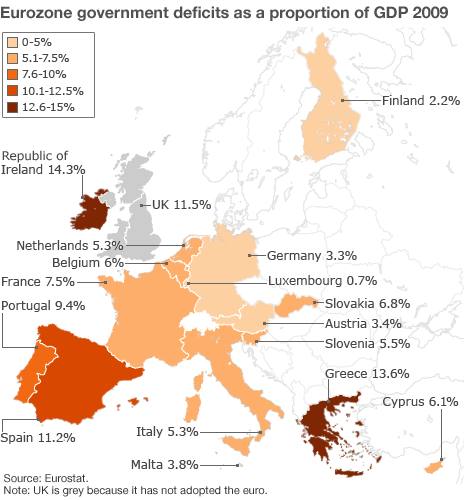Extended unemployment benefits for nearly 2 million Americans begin to run out Wednesday, cutting off a steady stream of income and guaranteeing a dismal holiday season for people already struggling with bills they cannot pay.
Unless Congress changes its mind, benefits that had been extended up to 99 weeks will end this month.
Hours before beefed-up benefits were set to expire at midnight on Tuesday, Democrats sought to extend them for another year. But they were blocked by Republican Senator Scott Brown, who said Democrats should have taken time to work out a compromise.
"It's not the way to do business in the United States Senate, and if it is it needs to change," Brown said.
With the unemployment rate stuck at around 9.6 percent, the two parties have been sharply divided over how to cover the cost of weekly checks that help jobless people stay afloat.
'Immediate crisis'
Congress has let jobless benefits lapse twice already this year as Republicans insist the cost — $160 billion in the last fiscal year — be offset by cuts elsewhere to prevent the nation's $13.8 trillion debt from growing further.
"I think we have to deal with the immediate crisis," Democratic Senator Jack Reed said. "I think we have to deal with the families that are struggling today."
Jobless benefits usually expire after six months, but since the recession took hold in 2007 Congress has voted to extend them for up to 99 weeks.
Nearly half of the 15 million unemployed people in the United States have been out of work for more than six months, the highest level of long-term unemployment since the government began keeping track in the 1940s.
Christmas is out of the question for Wayne Pittman, 46, of Lawrenceville, Ga., and his wife and 9-year-old son. The carpenter was working up to 80 hours a week at the beginning of the decade, but saw that gradually drop to 15 hours before it dried up completely. His last $297 check will go to necessities, not presents.
"I have a little boy, and that's kind of hard to explain to him," Pittman said.
The average weekly unemployment benefit in the U.S. is $302.90, though it varies widely depending on how states calculate the payment. Because of supplemental state programs and other factors, it's hard to know for sure who will lose their benefits at any given time. But the Labor Department estimates that, without a Congress-approved extension, about 2 million people will be cut off by Christmas.
Story: Jobless aid loss could choke economic growth Congressional opponents of extending the benefits beyond this month say fiscal responsibility should come first. Republicans in the House and Senate, along with a handful of conservative Democrats, say they're open to extending benefits, but not if it means adding to the $13.8 trillion national debt.
Even if Congress does lengthen benefits, cash assistance is at best a stopgap measure, said Carol Hardison, executive director of Crisis Assistance Ministry in Charlotte, N.C., which has seen 20,000 new clients since the Great Recession started in December 2007.
"We're going to have to have a new conversation with the people who are still suffering, about the potentially drastic changes they're going to have to make to stay out of the homeless shelter," she said.
Forget Christmas presents. What the so-called "99ers" want most of all is what remains elusive in the worst economy in generations: a job.
"I am not searching for a job, I am begging for one," said Felicia Robbins, 30, as she prepared to move out of a homeless shelter in Pensacola, Fla., where she and her five children have been living. She is using the last of her cash reserves, about $500, to move into a small, unfurnished rental home.
Robbins lost her job as a juvenile justice worker in 2009 and her last $235 unemployment check will arrive Dec. 13. Her 10-year-old car isn't running, and she walks each day to the local unemployment office to look for work.
Jeanne Reinman, 61, of Greenville, S.C., still has her house, but even that comes with a downside.
After losing her computer design job a year and a half ago, Reinman scraped by with her savings and a weekly $351 unemployment check. When her nest egg vanished in July, she started using her unemployment to pay off her mortgage and stopped paying her credit card bills. She recently informed a creditor she couldn't make payments on a loan because her benefits were ending.
Video: Obama, House leaders close to tax deal? (on this page) "I'm more concerned about trying to hang onto my house than paying you," she told the creditor.
Ninety-nine weeks may seem like a long time to find a job. But even as the economy grows, jobs that vanished in the Great Recession have not returned. The private sector added about 159,000 jobs in October — half as many as needed to reduce the unemployment rate of 9.6 percent, which the Federal Reserve expects will hover around 9 percent for all of next year.
'A hopeless situation'
Tara Carman told Kennewick, Wash.-based NBC station KNDU that she had been seeking work for six months.
"The checks ... they help me eat," Carman said. "I'm able to drive my car to an interview because I'm getting an unemployment check. If I didn't have that, I don't know where I would be going."
Edgar Woodward, 66, of Daytona Beach, Fla., was laid off in January 2009. He is set to be among 100,000 Floridians whose unemployment benefits will run out by Saturday,
the Daytona Beach News-Journal





















